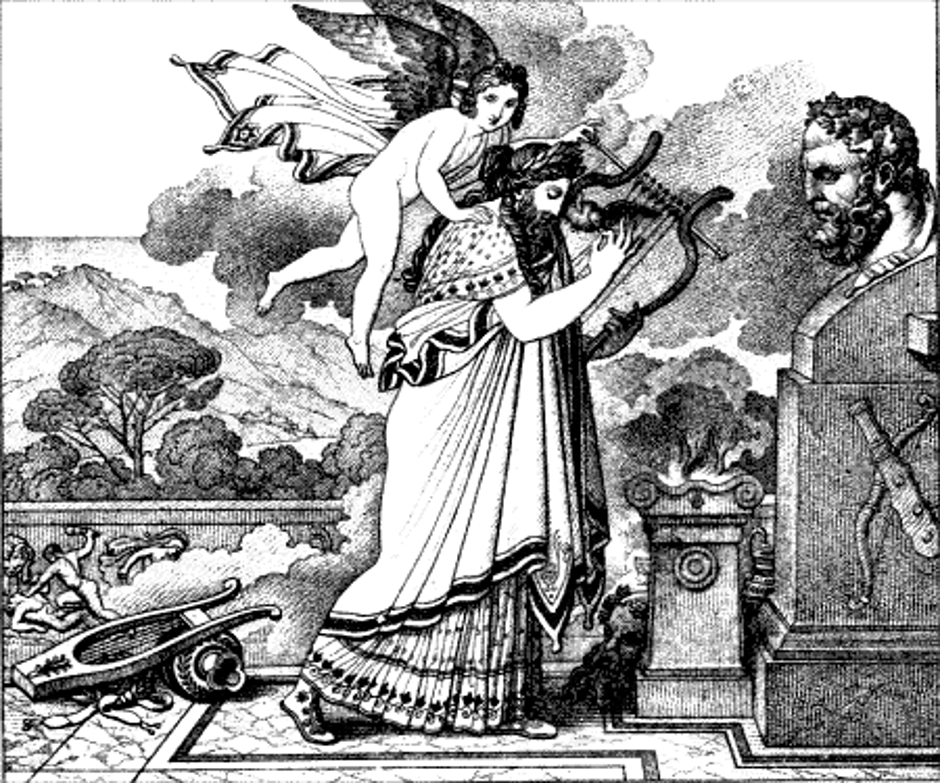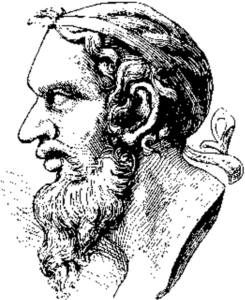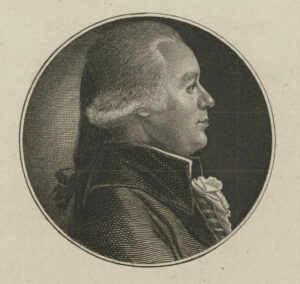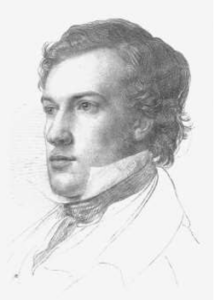To my lyre
(Poet's title: An die Leier)
Set by Schubert:
D 737
[1822 or 1823]
Ich will von Atreus’ Söhnen,
Von Kadmus will ich singen!
Doch meine Saiten tönen
Nur Liebe im Erklingen.
Ich tauschte um die Saiten,
Die Leier möcht ich tauschen!
Alcidens Siegesschreiten
Sollt ihrer Macht entrauschen!
Doch auch die Saiten tönen
Nur Liebe im Erklingen!
So lebt denn wohl, Heroen!
Denn meine Saiten tönen
Statt Heldensang zu drohen,
Nur Liebe im Erklingen.
I want to sing about the sons of Atreus,
I want to sing about Cadmus!
However, my strings proclaim
Only love when they resonate.
I have changed the strings,
I would like to change the lyre!
The victorious steps of Heracles
Should ring forth from its power!
However, those strings too proclaim
Only love when they resonate!
So farewell, then, heroes!
Because my strings
(Instead of threatening with songs of heroes)
Proclaim only love when they resonate.
All translations into English that appear on this website, unless otherwise stated, are by Malcolm Wren. You are free to use them on condition that you acknowledge Malcolm Wren as the translator and schubertsong.uk as the source. Unless otherwise stated, the comments and essays that appear after the texts and translations are by Malcolm Wren and are © Copyright.
☙
Themes and images in this text:
The ancient world Greece Lyres Stringed instruments (unspecified) War, battles and fighting
Θέλω λέγειν Ἀτρείδας,
θέλω δὲ Κάδμον ἄιδειν,
ὁ βάρβιτος δὲ χορδαῖς
ἔρωτα μοῦνον ἠχεῖ.
ἤμειψα νεῦρα πρώην
καὶ τὴν λύρην ἅπασαν·
κἀγὼ μὲν ἦιδον ἄθλους
Ἡρακλέους, λύρη δέ
ἔρωτας ἀντεφώνει.
χαίροιτε λοιπὸν ἡμῖν,
ἥρωες· ἡ λύρη γάρ
μόνους ἔρωτας ἄιδει.
Anacreon: Ode 1
Johann Friedrich Degen’s German translation (published in Anakreons Lieder, 1782), which must have been Bruchmann’s source:
Anakreon, Degen
Ich will von Atreus Söhnen,
Ich will vom Kadmus singen, *
Doch meiner Laute Saiten
Ertönen nur von Liebe,
Jüngst nahm ich andre Saiten,
Und wechselte die Leier,
Alcidens Siegeskämpfe
Zu preisen, doch die Laute
Sang Liebe mir entgegen.
So lebt nun wohl auf immer
Ihr Helden! meine Leier
Ertönet nur von Liebe.
* D. i. ich versuchte es, vom Troischen und Thebanischen Krieg zu singen
English translation from Degen
I want to sing about the sons of Atreus,
I want to sing about Cadmus, *
However, the strings of my lute
Resound only with love.
I recently took different strings,
And I changed the lyre,
The victorious battles of Heracles
Were what I wanted to praise, but the lute
Sang back to me with love.
So now farewell for ever
You heroes! My lyre
Resounds only with love.
* i.e. I tried to sing about the Trojan and the Theban Wars
I long to sing the Seidge of Troy; or Thebe's which Cadmus rear'd so high; but though with hand & voice I strove, my Lute will sound nothing but Love. I chang'd the strings, but 'twould not do't; at last I took an other Lute; & then I tri'd to sing the praise of All-performing Hercules. But when I sung Alcide's name, my Lute resounds Love, Love again. Then farewell all ye Græcian Peers, and all true Trojan Cavalleers: Nor Godds nor men my Lute can move; 'Tis dumb to all but Love, Love, Love. English translation by John Berkenhead (1617-1679) and set to music by Henry Lawes
I often wish this languid lyre, This warbler of my soul's desire, Could raise the breath of song sublime, To men of fame in former time. But when the soaring theme I try, Along the chords my numbers die, And whisper, with dissolving tone, 'Our sighs are given to love alone!' Indignant at the feeble lay, I tore the panting chords away, Attuned them to a nobler swell, And struck again the breathing shell; In all the glow of epic fire, To Hercules I wake the lyre! But still its fainting sighs repeat, 'The tale of love alone is sweet!' Then fare thee well, seductive dream, That madest me follow Glory's theme; For thou my lyre, and thou my heart, Shall never more in spirit part; And thou the flame shalt feel as well As thou the flame shalt sweetly tell. English translation by Thomas Moore

Of th' Atrides I would sing, Or the wand'ring Theban king; But when I my lute did prove, Nothing it would sound but love; I new strung it, and to play Herc'les' labours did essay; But my pains I fruitless found; Nothing it but love would sound: Heroes then farewell, my lute To all strains but love is mute. English translation by Thomas Stanley
☙
The Atreidai (or Atreides) were the sons of Atreus and Aerope: Agamemnon and Menelaos. Agamemnon, King of Mycenae, commanded the Hellenistic forces in the Trojan War. His brother Menelaos was King of Sparta and married to Helen, who was abducted and taken to Troy by Paris, thus precipitating the war.
Cadmus founded the city of Thebes in central Greece.
Alcides (or Alcaeus) was the original name of Heracles (or Hercules) before his mighty deeds led him be being declared the ‘pride of Hera’ – Heracles.
Bruchmann’s (or rather Degen’s) translation of Anacreon’s first Ode reminds us that the great epics and ballads of the ancient world were sung. The first lines of Homer’s Iliad (in Pope’s translation) are:
Achilles' wrath, to Greece the direful spring Of woes unnumber'd, heavenly goddess, sing!
and Virgil’s Aeneid (a sequel to Homer’s version of the Trojan War) begins: Arma virumque cano (‘I am going to sing about arms and the man’). In such a world it is the poet’s task to recount the heroic deeds of war and extol the virtues of strength and honour.
However, the strings that are strummed and plucked to accompany such a recitation undermine the poet’s intentions. The lyrical (by definition the domain of the lyre itself) takes over from the epic mode. It may be something to do with the inherent structure of the instrument. Striking one string sets others vibrating in response (with overtones), a clear instance of sympathy and desire winning out over conflict and strife.
☙
Note by Peter Rastl: this text might not be by Anacreon but by a later imitator. See Anacreontea quæ dicuntur secundum levesquii collationem codicis palatini recensuit, strophis suis restituit, stephani notis integris, aliorum selectis suisque, illustravit Dr. Fridericus Mehlhorn, gymnasii evangelici glogaviensis archididascalus, Glogaviæ, in Libraria Nova Guenteriana, 1825 ; also see Albin Lesky, Geschichte der griechischen Literatur, 3rd edition, 1971, Bern und München, page 210.
Schubert’s source was the manuscript of Bruchmann’s translation.




